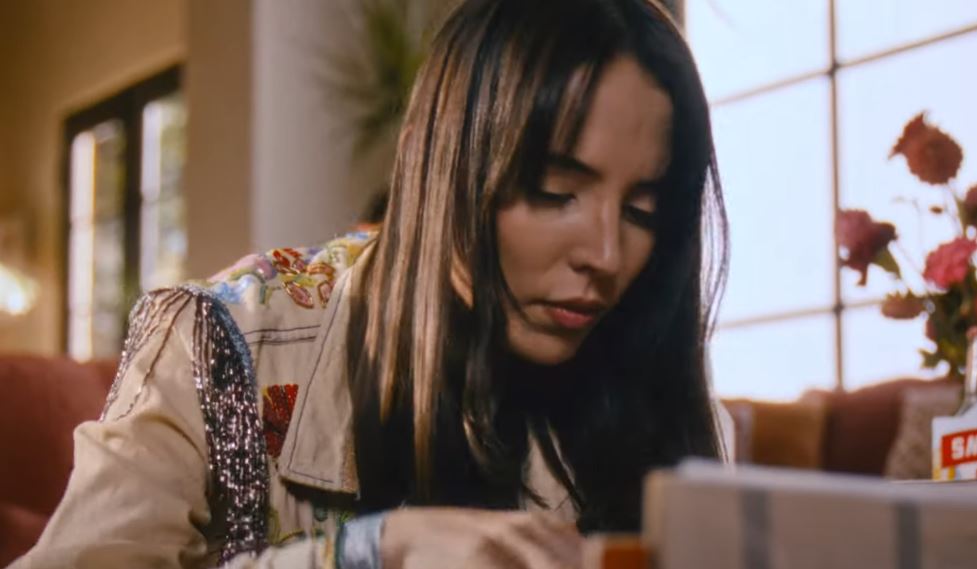Aguilar is one of the most respected names in Latin American music. Because of decades of cultural contributions, this surname has become ingrained in history. It was no accident that Majo Aguilar, the rising voice of a new generation, entered this world. The music itself shaped, led, and inspired her as she grew up.
Her grandparents, Antonio Aguilar and Flor Silvestre, and father, Antonio Aguilar Hijo, were national treasures in addition to being musicians. Eras were defined by their music. Their tales are told through sound. One note at a time, their granddaughter is now sustaining that flame into the future.
Majo Aguilar – Personal and Family Information (WordPress Format)
| Full Name | María José Aguilar Carrillo |
|---|---|
| Stage Name | Majo Aguilar |
| Date of Birth | June 7, 1994 |
| Place of Birth | Mexico City, Mexico |
| Father | Antonio Aguilar Hijo (singer and actor) |
| Grandparents | Antonio Aguilar & Flor Silvestre (Golden Age icons) |
| Siblings | Susana Aguilar |
| Genre | Ranchera, Pop, Cumbia |
| Years Active | 2016–present |
| Signed Label | Universal Music Mexico |
| Major Releases | Tributo, Mi Herencia, Mi Sangre, Soy |
A Cultural and Performance-Based Family Tree
Majo lived music on a daily basis rather than learning it in a classroom or discovering it on a whim. Her earliest recollections are filled with verse-performed family dinners, mariachi rehearsals, and melodies. Creativity blossoms like wildflowers in that type of home.
Her father, Antonio Aguilar Hijo, has had a significant impact both as a performer and as a quiet mentor. His performances in the 1970s and 1980s were incredibly successful in continuing the family’s musical and film heritage. Decades later, he continues to help Majo discover her own rhythm.
Antonio Aguilar and Flor Silvestre: Legends Behind the Scenes
Her parents weren’t your typical artists. They were the creators of a cultural movement in many respects. Antonio Aguilar’s acting and singing careers represented a golden age of Mexican entertainment, while Flor Silvestre’s voice carried emotional weight that was felt by all.
Their contributions have held up remarkably well. Even today, songs like Cielo Rojo and Triste Recuerdo are played at weddings, on street corners, and on playlists. This merging of the past and present is what gives Majo’s work a remarkably similar emotional depth while also being novel in its contemporary interpretation.
The Reason Majo Is More Than Just Her Last Name
Majo could have easily taken the Aguilar wave and gone with it. However, she has taken a more subtle approach, rebuilding her identity within it. Her range is clearly and confidently expanding, as evidenced by her chart-topping single “No Voy a Llorar,” which was written in her voice, and Tributo, which paid tribute to her family’s contributions.
She has significantly increased the accessibility of traditional Mexican sounds for Gen Z audiences by fusing modern pop influences with her family’s traditional ranchera heritage. Her music, which is presented with respect and artistry, is evolution rather than nostalgia.
Handling Private Relationships and Public Identity
Majo opened up about her distant relationship with cousin Ángela Aguilar in recent interviews. Even though tabloids spread rivalry rumors, Majo’s response has been surprisingly tactful. “Love exists. She said, “But we walk different paths,” which was a very obvious way to avoid drama and concentrate on her craft.
Her path has involved striking a careful balance between respecting her heritage and asserting her personal space, just like any public figure born into fame. With the help of her father’s unwavering encouragement and her own creative instincts, she overcomes the challenge with grace.
Her music serves as a bridge, and there is a bright future ahead
Majo started recording acoustic performances at her grandparents’ ranch during the pandemic when the stages went dark. These simplified renditions of beloved tunes proved to be incredibly successful in reviving classic ranchera ballads among younger listeners.
By means of strategic partnerships—with artists such as Ana Bárbara, Alex Fernández, and Santa Fe Klan—she has broadened her audience without sacrificing her authenticity. This strategy might establish her as one of the most significant crossover voices in Latin music in the upcoming years.
Reimagining Tradition, One Song at a Time
Majo Aguilar views the family name as a foundation rather than a burden. She is moving forward in the light of everyone, not in their shadow. Her art is especially inventive in the field of cultural preservation. She’s doing more than just acting. Tradition is being curated, transformed, and repurposed by her.
She is setting an example for legacy musicians who wish to carve out their own path by working with family while developing her sound. Her narrative demonstrates that respecting one’s heritage need not result in being constrained by it. Instead, it refers to utilizing it as a starting point.
FAQs
Who are Majo Aguilar’s parents?
Antonio Aguilar Hijo, a Mexican singer and actor, is her father. Her father’s family is the foundation of her musical heritage, but her mother’s identity is less well-known.
Is Majo related to Pepe Aguilar and Ángela Aguilar?
Yes, Pepe is her uncle, and Ángela is her cousin.
What role did her grandparents play in her life?
Antonio Aguilar and Flor Silvestre, her grandparents, were iconic musicians. Majo has credited them as her biggest influences.
Did her father help with her career?
Yes, Antonio Aguilar Hijo has supported her work and even collaborated with her musically.
Is Majo Aguilar signed to a record label?
Yes, she is currently signed to Universal Music Mexico.



